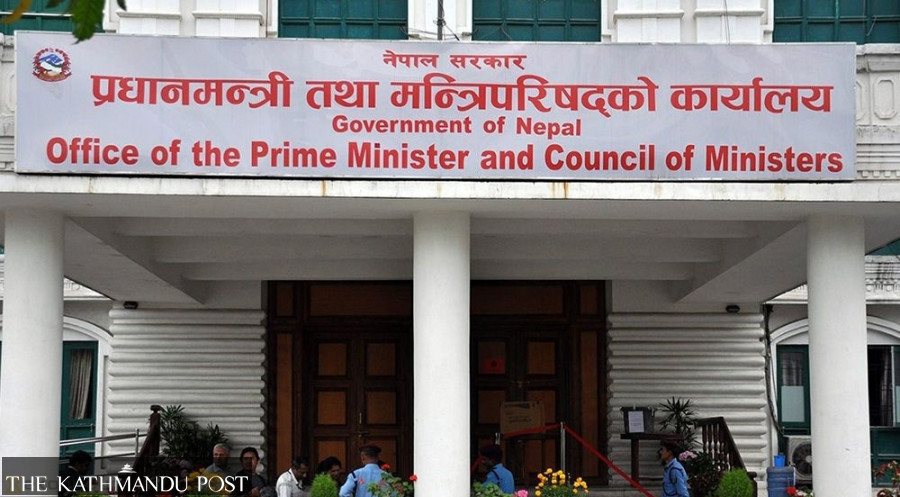National
Federal government overstepping provincial and local authorities: Study
Parliamentary study calls for removing federal offices that encroach on the jurisdictions of subnational governments.
Post Report
The Federalism Strengthening and National Concern Committee of the National Assembly has suggested that the federal government eliminate redundant offices to streamline government functions.
The federal government has been facing allegations that it undermined the jurisdictions of the provincial and local governments by giving continuity to various offices in breach of subnational governments’ jurisdictions.
“The federal government’s offices of agriculture, livestock, forest and education are operating at the local level alongside similar offices of local governments,” the upper house committee said in a study report. “Such duplications should be removed.”
According to the report entitled ‘Study Report on Inter-relation among Different Layers of the Government’, this led to rise in administrative expenses and duplication of works. “There should be a review of the institutional structure to remove unnecessary offices of the federal government,” the report, which was submitted to the upper house last week, said.
“The federal government has continued to maintain its administrative structures at sub-national levels,” said Khim Lal Devkota, immediate past lawmaker of the National Assembly and an expert on federalism.
“Even though 60 percent of workload has moved to provincial and local governments, the central government continues to hold the biggest chunk of the budget and government staff.”
Provincial and local governments have long expressed anger over the central government’s alleged overstepping of their jurisdictions. They are of the view that the centre has trampled even in the areas where there is an exclusive jurisdiction of provinces or local governments.
When Nepal first adopted the three-tier federal system in the Constitution of Nepal-2015, the statute listed the powers of federal, provincial and local governments on several lists. They are: list of federal power, list of provincial power, list of concurrent powers of federation and provinces, list of local level power and the list of concurrent powers of federation, state and local level.
Such federal level intervention was first seen when the centre continued to raise rental taxes even though the constitution has listed rental tax under exclusive jurisdiction of local governments. The federal government in 2018 bowed to the pressure of local governments and stopped collecting the tax.
In 2019, the provincial governments protested after the federal Public Service Commission sought to conduct exams to recruit over 9,000 government staff for the local governments.
The Provincial Public Service Commission is responsible for recruiting the staff for the local governments as per the constitution, but the provincial body had not been set up at that time.
The provincial governments have registered over half a dozen litigations at the Supreme Court against alleged breach of jurisdiction of the provinces by the federal government.
In October last year, Bagmati provincial government filed a petition demanding scrapping of the Urban Area Public Transport (Management) Authority Act promulgated by the federal parliament in 2022. The Act authorises the federal government to set up an authority to manage public transport in three districts of the federal Capital. Bagmati Province has 13 districts.
As transport management falls under the explicit jurisdiction of provinces, the federal government’s Act is unconstitutional, the petition argues. Transport management has been listed as an explicit authority of provinces on Schedule 6 of the Constitution of Nepal.
It was on August 1, 2019 that the then Province 2 [presently Madhesh] government filed the first writ petition against the federal government challenging the decision of the Ministry of Forest to merge the Sagarnath Forestry Development Project with Timber Corporation of Nepal.
The Madhesh Province filed another writ petition against the federal government’s handling of provincial police-related issues.
On December 4, 2020, Jitendra Sonal, then minister for physical infrastructure development at the province, filed the petition after the Department of Irrigation, which falls under the federal government, issued a tender for implementing the Prosperous Tarai Madhesh Special Irrigation Programme.
“The law should be prepared to avoid breach of each other’s constitutional jurisdictions,” the parliamentary committee has said. “There should be coordination and consultation among three layers of the government on the issues of concurrent jurisdictions.”
But Devkota said that the federal government is reluctant to relinquish its bureaucratic authority over the provincial and local governments.
“This is evident in the Federal Civil Service Bill registered in Parliament that empowers the federal government to appoint bureaucrats as provincial government secretaries for a 10-year term,” he said.




 9.83°C Kathmandu
9.83°C Kathmandu













